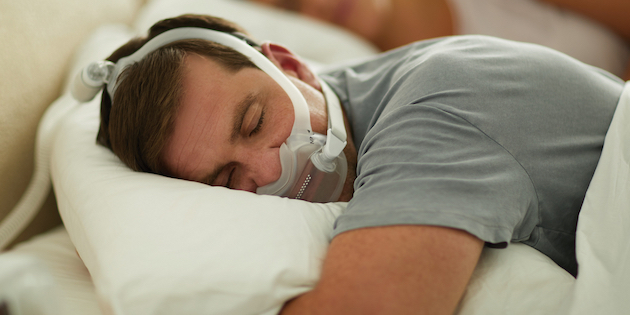Effects involving hearing implants among reasons why Philips is recalling 17m sleep apnea masks

And French prosecutors are now investigating the recall, on the grounds of “aggravated deception, involuntary attacks on physical integrity, endangerment of life of others and administration of harmful substances,” reports Reuters.
The consumer giant’s subsidiary, Philips Respironics, has (September 6, 2022) issued an alert to the effect that certain of its masks used with bilevel positive airway pressure (also known as Bilevel PAP, BiPAP, or BPAP) machines and continuous positive airway pressure (CPAP) machines, could compromise the functionality of a long list of equipment that may be affected by magnets.
The effect could be noted in possibly fatal terms by patients, household members, caregivers, and bed partners who use implants. The list of contraindicated devices, which includes vital items such as pacemakers, brain stents and cardioverter defibrillators, also covers “implants to restore hearing or balance that have an implanted magnet (such as cochlear implants, implanted bone conduction hearing devices, and auditory brainstem implants)”.
The US Food and Drug Administration (FDA) issued an alert detailing the masks and contraindicated devices, stating: “As of August 30, 2022, Philips reported 14 serious injuries and zero deaths related to the use of the recalled masks. The reported injuries included pacemaker failure leading to pacemaker replacement, a need for shunt adjustment, resetting of automatic implantable cardioverter defibrillator, arrhythmia, cognitive changes, headaches, change in heartrate (tachycardia, bradycardia), convulsions (seizures), and irregular blood pressure.
The magnets can potentially affect the functioning of or cause movement of certain implanted metallic medical devices, which could result in injury or death to the mask user or people near the patient wearing the recalled mask, such as a bed partner, who have such devices, points out the FDA. Medical devices that could potentially be affected by these magnets include brain stents, aneurysm clips, pacemakers, implantable cardioverter defibrillators, ventriculoperitoneal shunts, ocular implants, magnetic denture attachments, insulin pumps, certain neurostimulators used in and around the neck, cochlear implants or any metallic implanted medical device affected by magnets.
“This latest recall raises further safety concerns both for Philips devices already subject to a recall, as well as additional devices,” said Jeff Shuren, director of the FDA’s Center for Devices and Radiological Health. “We strongly encourage providers and at-risk patients to review this important safety information and follow our recommended actions to reduce the potential for harm from these products.”
Where to look for information
For support in the US concerning this issue, please contact Philips Customer Care Solutions Center at (USA)1-800-345-6443 or visit their website.
If you think you had a problem related to the recalled masks, the FDA encourages you to report the problem through the MedWatch Voluntary Reporting Form.
Medical Device Reports have limitations
Underlining that manufacturers are required to submit medical device reports (MDRs) when information reasonably suggests that their device may have caused or contributed to a death or serious injury, the FDA also points out this system of passive surveillance is prone to “under-reporting of events, inaccuracies in reports, lack of verification that the device caused the reported event, and lack of information about details such as frequency of device use”. As such, says the FDA, the system has to be supported by other postmarket surveillance sources.
Philips has recent history with mask problems, but this is a new concern
In June 2021, Philips Respironics recalled certain ventilators, BiPAP machines, and CPAP machines (providing 535, 000 repair kits and replacement devices in Western Europe) because the polyester-based polyurethane (PE-PUR) foam used in these devices to reduce sound and vibration was susceptible to breaking down, meaning black pieces of foam, or certain non-visible chemicals could be breathed in or swallowed by the person using the device. The September 2022 recall is unrelated to the foam problem.
Source: MedTech Dive/Reuters/FDA
 Sign in
Sign in

